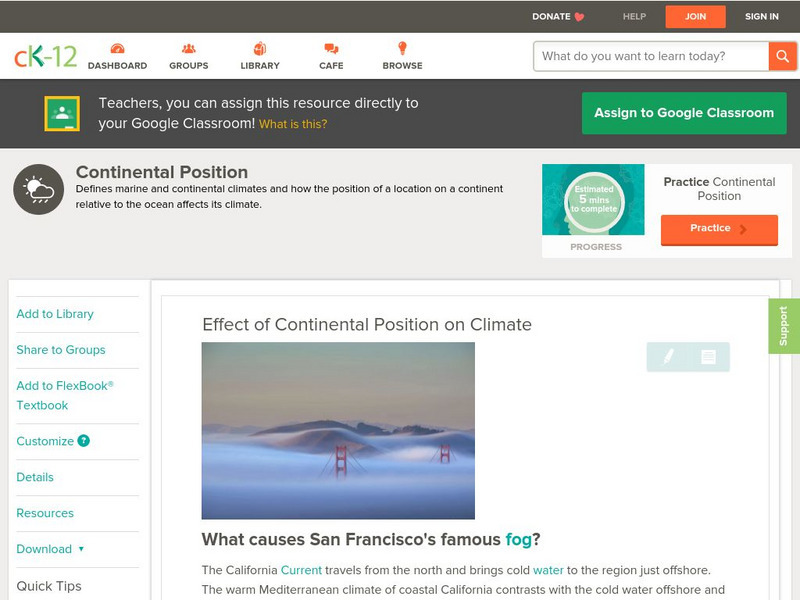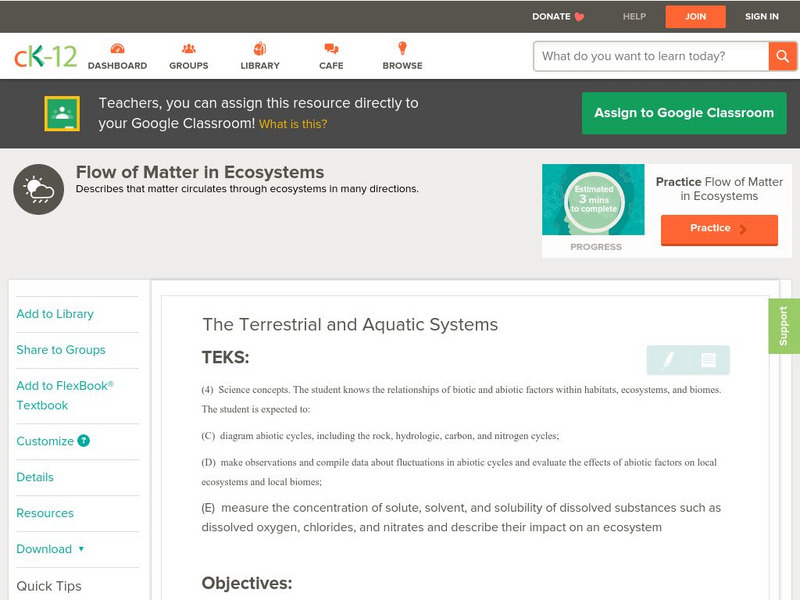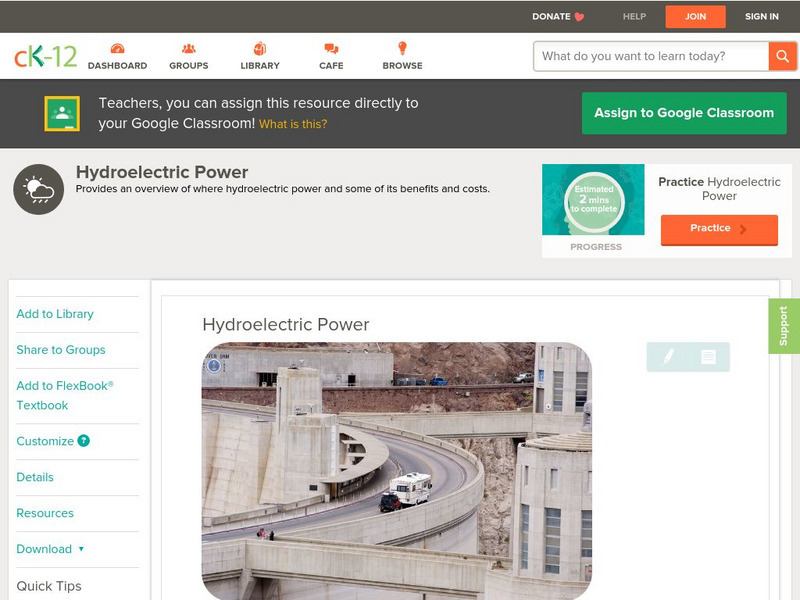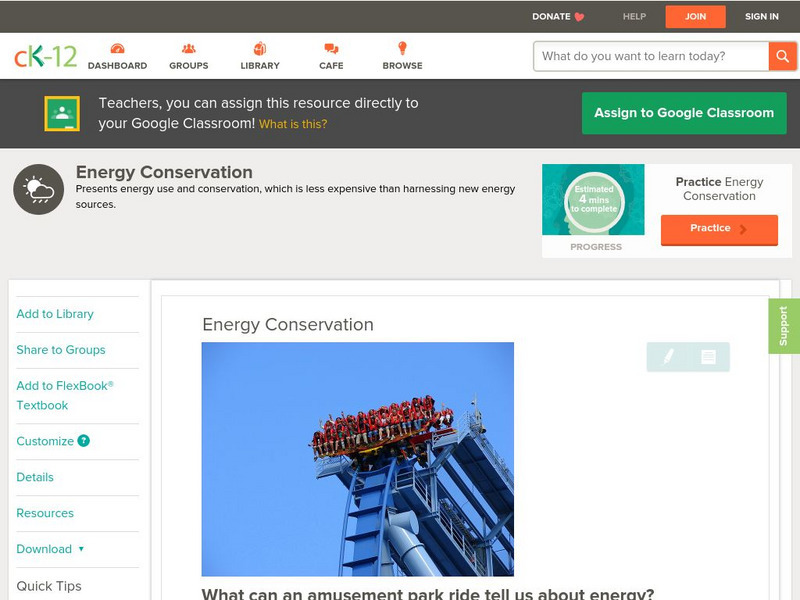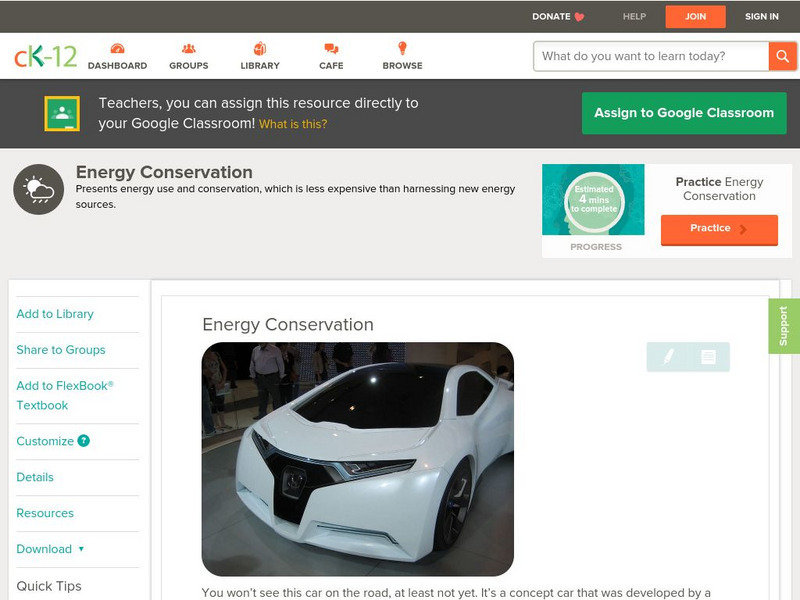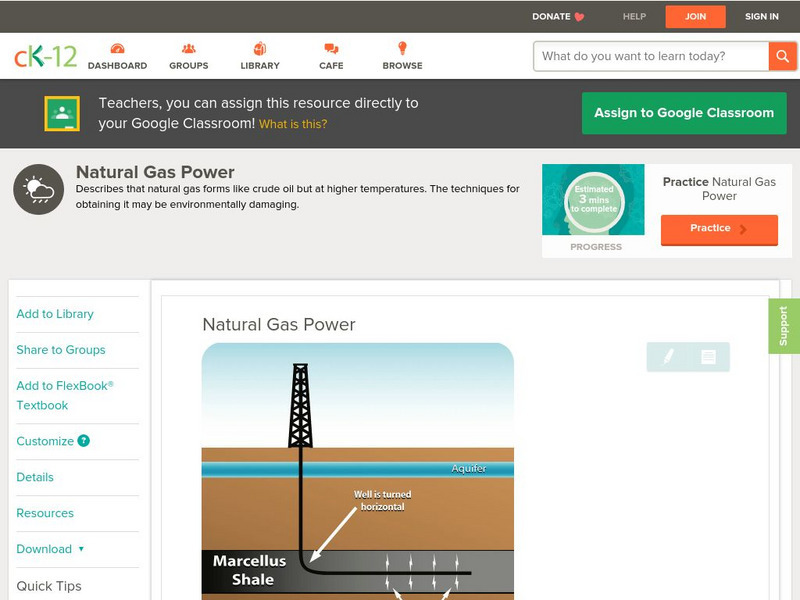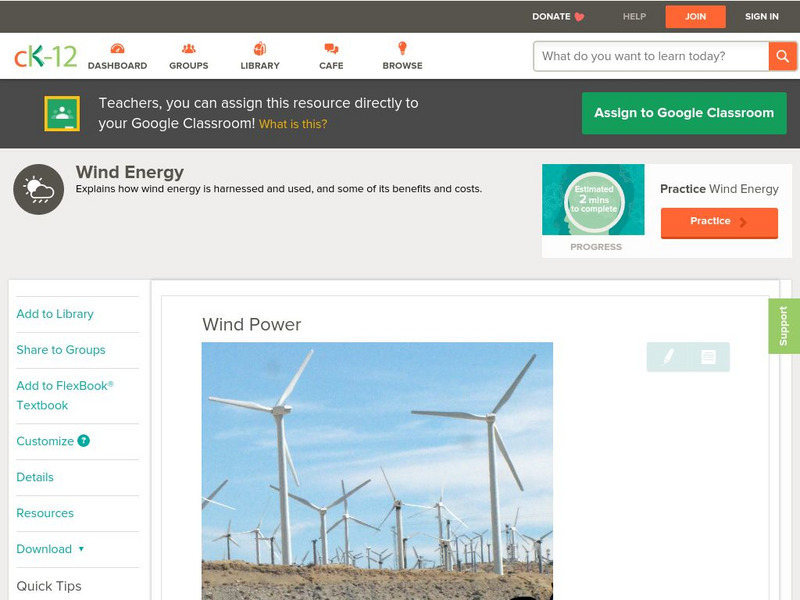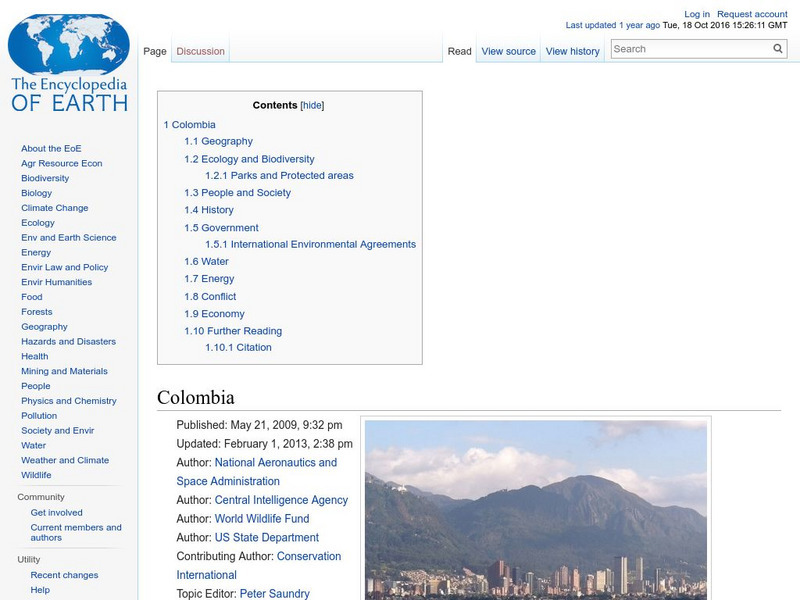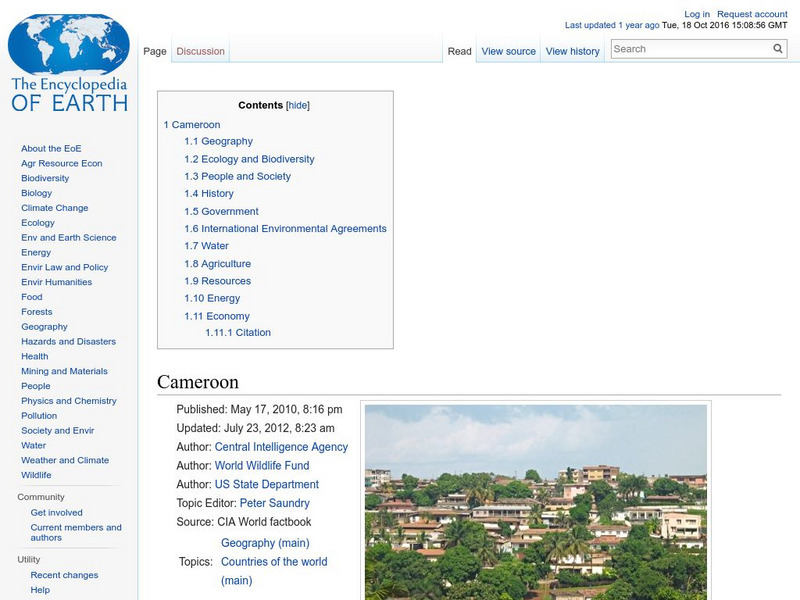CK-12 Foundation
Ck 12: Earth Science: Effect of Continental Position on Climate
[Free Registration/Login may be required to access all resource tools.] How close a region is to the ocean affects its climate.
CK-12 Foundation
Ck 12: Earth Science: Global Wind Belts
[Free Registration/Login may be required to access all resource tools.] Describes how regional differences in solar radiation create global wind belts.
CK-12 Foundation
Ck 12: Earth Science: Star Power Study Guide
[Free Registration/Login may be required to access all resource tools.] This study guide summarizes key points about the energy in stars. Includes a few questions to check for understanding.
CK-12 Foundation
Ck 12: Earth Science: Flow of Matter in Ecosystems
[Free Registration/Login may be required to access all resource tools.] In this module, students will learn about the cycles of nature (water, carbon, nitrogen, and phosphorus) that support the flow of nutrient matter through an...
CK-12 Foundation
Ck 12: Earth Science: Hydroelectric Power
[Free Registration/Login may be required to access all resource tools.] Overview of hydroelectric power and its consequences.
CK-12 Foundation
Ck 12: Earth Science: Hydroelectric Power
[Free Registration/Login may be required to access all resource tools.] Overview of hydroelectric power and its consequences.
Howard Hughes Medical Institute
Hhmi: Bio Interactive: Paleoclimate: A History of Change
Learn about the history of Earth's climate in this Click and Learn. Learn how many factor control Earth's climate. Specifically, examine two of the most important factors: solar radiation and the composition of Earth's atmosphere.
PBS
Pbs Learning Media: A Different Kind of Fuel
In this segment from Curious, learn about creating energy from solar rays to meet the growing energy needs of the world. [6:09]
CK-12 Foundation
Ck 12: Earth Science: Energy Conservation
[Free Registration/Login may be required to access all resource tools.] Overview of how energy is used, and how it can be conserved.
CK-12 Foundation
Ck 12: Earth Science: Nuclear Power
[Free Registration/Login may be required to access all resource tools.] How energy can be generated through nuclear reactions.
CK-12 Foundation
Ck 12: Earth Science: Energy Conservation
[Free Registration/Login may be required to access all resource tools.] Definition of conservation, and conserving energy in transportation and at home.
CK-12 Foundation
Ck 12: Earth Science: Nuclear Power
[Free Registration/Login may be required to access all resource tools.] How energy can be generated through nuclear reactions.
CK-12 Foundation
Ck 12: Earth Science: Nuclear Power
[Free Registration/Login may be required to access all resource tools.] How energy can be generated through nuclear reactions.
CK-12 Foundation
Ck 12: Earth Science: Natural Gas Power
[Free Registration/Login may be required to access all resource tools.] Overview of natural gas' creation, usage, and effects.
CK-12 Foundation
Ck 12: Earth Science: Natural Gas Power
[Free Registration/Login may be required to access all resource tools.] Overview of natural gas' creation, usage, and effects.
PBS
Pbs Learning Media: Earth's Albedo and Global Warming
In this interactive activity adapted from NASA and the U.S. Geological Survey, learn about Earth's albedo (the ratio of reflected vs. incident solar radiation), how pollution alters albedo, and how ice-albedo feedback may accelerate...
CK-12 Foundation
Ck 12: Earth Science: Wind Power
[Free Registration/Login may be required to access all resource tools.] How wind can be used to generate power, and its consequences.
Science Education Resource Center at Carleton College
Serc: Why Is the Earth Still Hot Inside?
In this lesson plan, students conduct heat transfer experiments to investigate why the Earth is still hot at its core, even after billions of years since its formation. They will learn that the rate of heat transfer is dependent on an...
Other
Abc Da Energia
ABC Da Energia describes the many ways that energy can be obtained and conserved. It explains different sources of energy, how each works, and how energy can be saved in our daily lives. Interactive energy-saving activities and games...
University of Wisconsin
The Why Files: Energy at the Earth's Poles
A resource to help understand how the amount of energy at the Earth's poles affects polar conditions.
TED Talks
Ted: Ted Ed: How Do Solar Panels Work?
The Earth intercepts a lot of solar power: 173,000 terawatts. That's 10,000 times more power than the planet's population uses. So is it possible that one day the world could be completely reliant on solar energy? Richard Komp examines...
Encyclopedia of Earth
Encyclopedia of Earth: Colombia
Facts about Colombia including environmental issues, background, geography, ecology and biodiversity, people, economy, natural resources, energy resources, and conflict.
Encyclopedia of Earth
Encyclopedia of Earth: Cameroon
Facts about Cameroon including environmental issues, geography, government, people, water, economy, agriculture, health, natural resources, energy resources, and conflict.
Encyclopedia of Earth
Encyclopedia of Earth: Burundi
Facts about Burundi including environmental issues, geography, government, people, water, economy, agriculture, health, natural resources, energy resources, and conflict.


